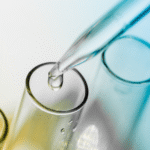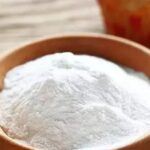Feed antibiotics play a great role in promoting animal growth and promoting the development of the breeding industry, but the long-term use of antibiotics can lead to bacterial mutations, the emergence of drug-resistant strains, drug residues in livestock and poultry products and the environment, and directly or indirectly endanger human health. For this reason, people began to look for healthy, environmentally friendly and efficient animal feed to replace antibiotic feed.
Based on the optimization of the fermentation process of corn-soybean meal mixed feed in the early stage, this experiment explored the effects of antibiotic-free fermented feed on the growth performance and fecal microorganisms of weaned piglets, and provided a scientific basis for the application of fermented mixed feed in animal diets.
Materials and Methods
Antibiotic-free fermented feed
Antibiotic-free fermented feed: corn and soybean meal are first weighed, crushed and mixed in a ratio of 50% each as the raw material of the fermentation mixture; then fermentation is carried out, and the strains used are composed of Lactobacillus rhamnosus, Lactobacillus plantarum, Bacillus subtilis, Bacillus licheniformis, and yeast, and the feed-water ratio is 1:0.45; anaerobic fermentation is carried out at 35°C for 60 hours.
Experimental animals and groups
A total of 120 28-day-old Landrace piglets of the same parity and similar weight were randomly divided into an experimental group and a control group, with 6 replicates in each group and 10 pigs in each replicate, for a 47-day feeding experiment. The experimental pigs were provided by Yifa Animal Husbandry Dual Pig Farm.
Experimental design
A controlled experimental design was adopted. The control group added 50 mg/kg chlortetracycline and 100 mg/kg quinolone to the basic diet; the experimental group used 10% antibiotic-free fermented feed to replace the corresponding corn-soybean meal diet in the basic diet, and no antibiotics were added.
Feeding and management
The experimental pigs were kept in different pens in the same pen. The feeding management and environmental conditions of each group were completely consistent. They were free to eat and drink water. Deworming, immunization and epidemic prevention were carried out according to conventional management methods, and the feces and pens were cleaned in time every day. Carefully observe the feeding, feces and mental state of the experimental pigs.
Measurement items
The fasting weight of the experimental pigs was weighed in units of repetitions at 28 days and 75 days of age, and the amount of feed and remaining feed was recorded at the same time. The average daily weight gain, average daily feed intake and feed-to-weight ratio were calculated.
Fresh feces were randomly collected from the pig pens of the experimental group and the control group at 75 days of age for colony counts.
Results and analysis
Effects of antibiotic-free fermented feed on growth performance of weaned piglets
The average daily weight gain (0.46 g VS 0.40 g), average daily feed intake (0.71 g VS 0.65 g) and feed-to-weight ratio (1.54 VS 1.63) of the experimental group were better than those of the control group. This indicates that adding 10% antibiotic-free fermented feed to the diet of weaned piglets can significantly increase the average daily feed intake and average daily weight gain of weaned piglets and reduce the feed-to-weight ratio.
Effect of antibiotic-free fermented feed on fecal microorganisms of weaned piglets
The number of lactic acid bacteria (41.88×107 cfu/g VS 31.04×107 cfu/g ) and bifidobacteria (32.16×107 cfu/g VS 29.25×107 cfu/g ) in the experimental group was significantly higher than that in the control group, while the number of Escherichia coli (14.11×107 cfu/g VS 15.08×107 cfu/g ) and Salmonella (1.10×107 cfu/g VS 1.91×107 cfu/g ) were significantly lower than that in the control group. This indicates that adding 10% antibiotic-free fermented feed to the diet of weaned piglets can reduce the number of pathogenic Escherichia coli and Salmonella in the feces of weaned piglets, while increasing the number of probiotic lactic acid bacteria and bifidobacteria.
Conclusion
Under the premise of not adding antibiotics, using 10% antibiotic-free fermented feed to replace the corresponding corn-soybean meal type diet in the basic diet can replace antibiotics, increase the average daily weight gain of weaned piglets, improve the feed-to-weight ratio, and regulate the balance of intestinal microbial flora, providing a feasible way for the production of antibiotic-free pork.




